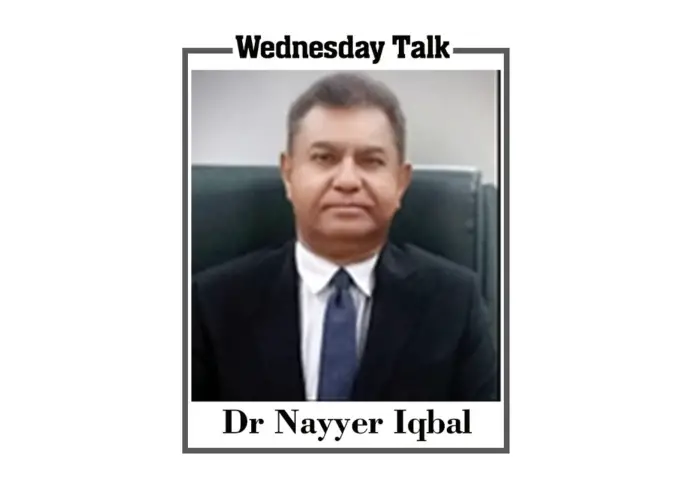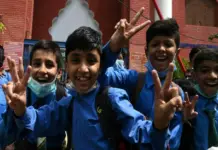Yesterday was 6th September. Apart from 14th August, no other day has gained more emotional value for Pakistanis than the 6th September. It was the date in 1965, when India had crossed the Indo-Pak border to reduce pressure on the Line of Control in Kashmir and Pakistan had defended it well. The under-lying secret of the 6th September’s unending romance is the way in which India assaulted and Pakistan responded. The attack was deemed as immoral and illegitimate and the retaliation was valorous. Initially, it might have been a state-sponsored effort to glamourize the event for political reasons but with the passage of time it has penetrated into the psyche of the Pakistani nation. Now, it shines as a symbol of patriotic bravery and country’s potential to defend itself.
Actually, the story does not start from the wee hours of the 6th September, 1965. The presidential election of January 2, 1965 wherein Field Marshal Ayub Khan defeated Fatima Jinnah effected his public standing considerably. To rehabilitate the incumbent’s position, something extra-ordinary was needed to be done for which liberation of occupied Kashmir was considered to be an ideal choice. The project code-named ‘Operation Gibraltar’ basically worked-out by a 3-member group headed by Foreign Minister ZAB and joined by ex-Foreign Secretary/top- bureaucrat Aziz Ahmed and GOC Murree Major General Akhter Malik was launched. However, the plan contained some serious errors of judgement. The most glaring flaw was the assumption that the activity will remain limited to LOC and will not turn to a full-fledge war. As Pakistan-encouraged commotion in Indian-held Kashmir and pressure on LOC intensified, India widened the theatre of war to the whole of West Pakistan. Despite being unprepared for the situation, the Pakistan’s military apparatus and the public at-large responded in a befitting manner and the war stalemated. Pakistan intensely laid the claim to success based upon its forceful defense.
The 17-days war resulted in national unity, at-least in the short-run. Also, it brought to an end Pakistan’s disillusion regarding the nature of its relationship with America, later reflected by President Ayub Khan in his autobiography meaningfully titled ‘Friends not Masters’. Winding-up of Third 5-year Plan due to monitory reasons disrupted the development process generated by the two earlier 5-year plans outlined and implemented successfully. Another outcome of the War was disappointment with President Ayub Khan’s much- trumpeted leadership ability leading to his political decline. ZAB’s meteoric rise in politics was also directly linked with the 1965-war who claimed that the President had lost the military victory on the negotiation table at Tashkent. It was all history: the political scientists, critical analysts and pipe-smoking intellectuals will keep on hair-splitting and philosophizing the event. However, the commoners perceive and reminisce 1965-war in an entirely different context. Their memories contain certain other images and glimpses.
President Ayub Khan’s speech on the morning of 6th September confirming the Indian attack and commanding his countrymen to face the imposed situation bravely and resiliently, in his berry-tone voice, was genuinely historic. Mostly heard on radio, the speech enthralled the whole nation and each individual felt charged. Civil defense exercises were started; youngsters wearing ‘Qaumi Razakar’ uniforms went door to door to ensure compliance of curfew during day-time and black-out at night on the warning of air-attack; and stalls to collect ‘Defense Fund’ and blood, blaring national songs on speakers, were established. Instead of panic, a feeling of exhilaration proliferated.
All segments of Pakistani society, irrespective of their socio-economic background and educational status, were deeply involved in the on-going developments and wanted to know the latest from the front. Radio was the common medium and those who did not have the one, assembled around tea-stalls and other public-places to hear the fresh bulletins. When either Shakeel Ahmed or Anwar Bahzad, the most popular news-casters, made some positive announcement, the hearing crowed raised slogan of ‘Allah-ho-Akbar’ enthusiastically. The newspapers were read widely, individually or on shared-basis, which contained stories of valor, and pictures of alive heroes like M. M. Aalam and martyrs like Major Aziz Bhatti and Brigadier A. R. Shami. The performance of Pakistan’s defense mechanism made all and sundry proud of it.
The Indo-Pakistan War was taken as a Hindu-Muslim conflict; rather, an extension of centuries-old clash between Islam and Hinduism. The irritation between the two had started with the Sindh’s conquest by Muhammad bin Qasim and had continued through various Muslim invasions from north, different behaviors towards the British rule; finally leading to partition. The insertion of religious feeling in politics ignited imagination of simple and devoted Muslims. It was rumored that long-bearded, white-attired saintly figures had been seen catching bombs dropped by Indian air-force jets. It was also claimed that a shining sword appeared on northern horizon pointing towards India every-day before dawn. The war actually revitalized the religion-based nationalism in the sub-continent and transformed the nature of relationship between the two neighboring states, used to be part of a single country just 18 years ago.
Any discussion on 1965-war remains incomplete without the mention of Nur Jahan and her patriotic songs. The anthems written by Sufi Ghulam Mustafa Tabassum, Tanveer Naqvi, Masroor Anwar and numerous other poets; and rendered by Nur Jahan in her melodious voice raised the morale of the nation to an amazing extent. Whenever, during the fateful 17 days Nur Jahan’s voice arose on radio or people-installed loud-speakers, it made the listeners emotional. The soldiers sitting in the trenches, ‘Razakars’ performing their duties in civilian localities and commoners irrespective of their age or gender were equally enthralled. Even today, after a lapse of 57 years, when a 1965-number of Madam Nur Jahan is heard by some old-timer, tears start flowing from his or her eyes due to emotional out-burst.
More than half of a century has gone-by, however the magic of 1965-war persists. The national unity and the bond of trust between defense forces and public, created by this memorable episode of Pakistan’s history serves as an example even today. The romance will continue.







